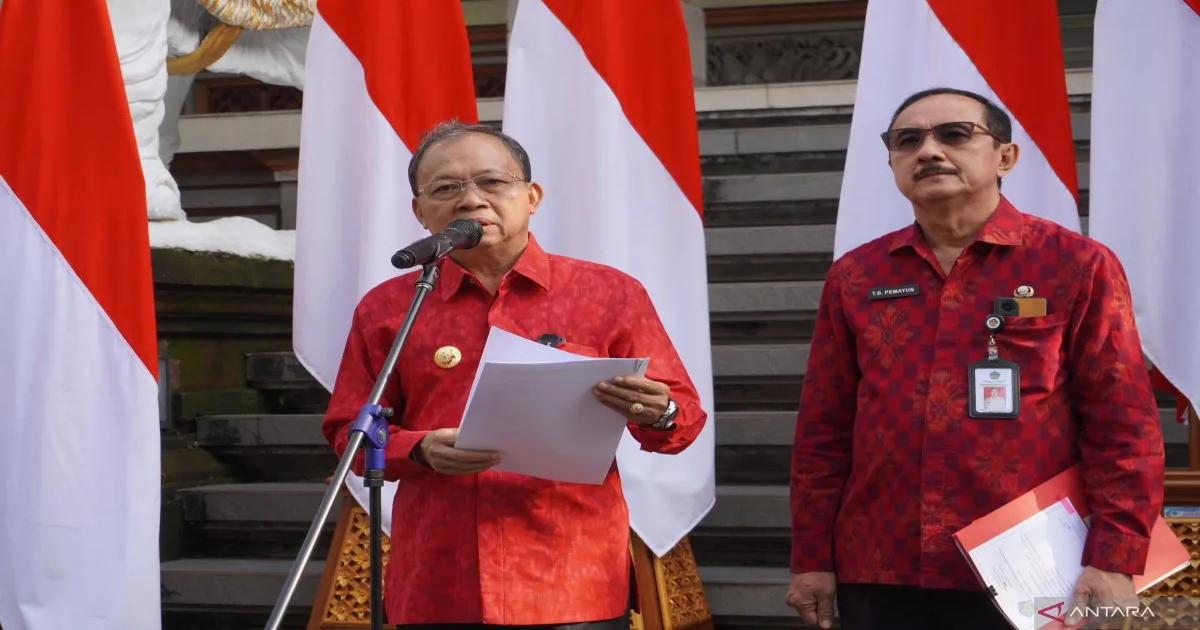Monday, March 24, 2025
On March 24, 2025, the Bali Provincial Government introduced Circular Letter (SE) Number 7 of 2025, outlining a comprehensive set of new rules for foreign tourists visiting the island. Issued by Governor Wayan Koster in Denpasar, the circular formalizes a cultural code of conduct aimed at ensuring respectful, sustainable, and law-abiding tourism as Bali experiences a resurgence in international arrivals.
Governor Koster emphasized that while a similar circular was issued in 2023, changing circumstances during his 1.5-year hiatus prompted updates to streamline tourist behavior and preserve Balinese traditions, spirituality, and environmental integrity.
Respect for Balinese customs made a central tourism mandate
The updated circular mandates that all foreign tourists show genuine respect for temples, statues, and sacred religious symbols, particularly during ceremonial and ritual processions. Visitors are now formally expected to observe and honor local customs, traditional values, and cultural etiquette throughout their stay.
Tourists are required to wear modest and respectful clothing when visiting sacred sites, public areas, and tourist attractions. Additionally, respectful behavior is now obligatory across public spaces—from holy temples and restaurants to markets, roads, and recreational sites.
Mandatory guide services and tourism levies introduced
Under the new policy, every foreign visitor must be accompanied by a licensed local tour guide who is well-versed in Balinese ecology, traditions, and cultural history. This aims to enrich the tourist experience while minimizing misunderstandings and misbehavior.
The government has also mandated the payment of a Rp150,000 tourism levy, which can be settled either upon arrival or during the visit. This levy supports local conservation efforts and infrastructure maintenance, reinforcing Bali’s push for quality over quantity in tourism.
Transaction and payment rules for responsible tourism economy
The circular imposes firm rules for financial transactions. Tourists must exchange money only at licensed KUPVA institutions, including banks and certified non-bank operators. Digital payments must use the Indonesian standard QR code, and all transactions must be conducted in Indonesian rupiah. This move is intended to protect both visitors and local businesses while enhancing tax transparency and reducing illicit currency exchange activity.
Driving in Bali now subject to stricter enforcement for foreigners
Tourist transportation in Bali has been under increased scrutiny, and the circular formalizes expectations. Foreigners must possess a valid international or Indonesian driving license, wear proper clothing, and use helmets when riding motorcycles. Reckless driving, including exceeding vehicle capacity, ignoring traffic signs, or driving under the influence of alcohol or drugs, is strictly prohibited.
Only roadworthy vehicles that are legally rented through licensed transportation providers are permitted. These regulations aim to reduce traffic accidents involving tourists and improve safety on Bali’s often congested roads.
Accommodation and attraction access limited to legal operators
Bali’s government has also called on tourists to book accommodations only through licensed hotels and guesthouses. Additionally, visitors must adhere to any site-specific rules imposed by tourism operators or local authorities at destinations such as temples, forests, beaches, and rural villages.
A particularly strict rule bans tourists from entering the main and middle sanctums of holy places unless they are participating in a legitimate religious ceremony or prayer. Climbing sacred trees, desecrating spiritual areas, or displaying disrespectful behavior near temples is now explicitly forbidden.
Eco-conscious measures to protect Bali’s environment
In a move aligned with global sustainable tourism efforts, the circular prohibits tourists from polluting springs, littering, or using single-use plastics. The government is also cracking down on disruptive actions such as swearing in public, engaging in unauthorized business activities, or working without proper visas or permits.
Those who violate the regulations may face legal consequences, including sanctions or prosecution under Indonesian law. Governor Koster has empowered local communities to report tourist misconduct directly by contacting 081-287-590-999, an official reporting hotline.
International cooperation reinforces message of respect
The government’s move has received support from countries like Australia, whose embassy has echoed the call for tourists to respect Bali’s laws, customs, and environmental policies. This international alignment helps amplify the island’s push to preserve its cultural identity and natural assets amid record-breaking tourism targets.
Bali is aiming to attract 6.5 million foreign visitors in 2025, but the administration is clearly prioritizing responsible tourism over uncontrolled mass arrivals. These new rules reflect Bali’s broader vision to position itself as a sustainable, ethical, and culturally immersive destination.
How this impacts tourism stakeholders
Travel agencies, hotel operators, digital booking platforms, and international airlines bringing visitors to Bali will need to adjust their briefings and customer guidance to ensure compliance with the new rules. Tourism-related businesses are encouraged to collaborate with local guides, cultural educators, and legal advisors to improve orientation and onboarding for foreign tourists.
By enforcing these strict yet culturally sensitive policies, Bali is not only safeguarding its heritage but also signaling a shift toward higher-value, respectful tourism—a strategy that may soon become a model for other culturally rich destinations around the world.
To learn more about the regulations or plan a culturally responsible visit, travelers can consult the official government tourism portals or follow verified local tour agencies.
Tags: Asia, Asia tourism news, Bali, Bali temple entry rules, Bali tourism levy, Bali Tourism News, Bali travel regulations 2025, Denpasar, Denpasar tourism news, indonesia, Indonesian driving rules, Indonesian tourism guidelines, sacred sites in Bali, sustainable tourism Indonesia
Follow Travel And Tour World in Google News

